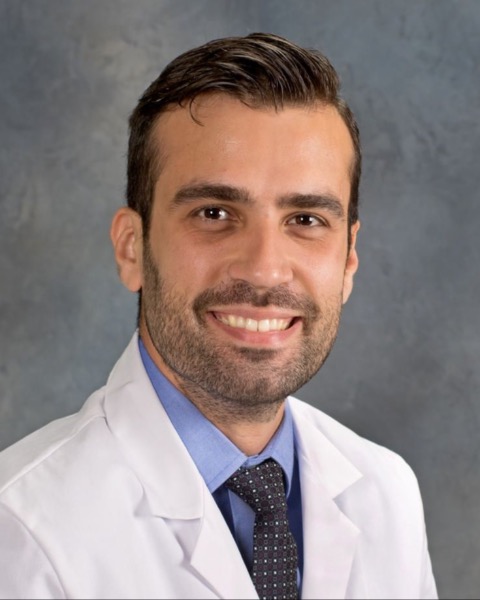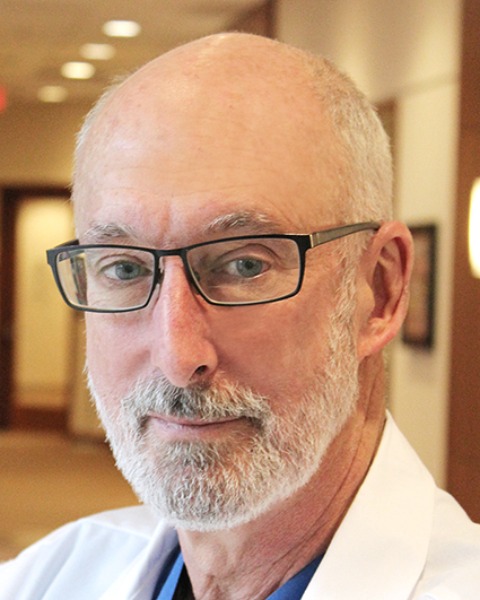Colorectal
E103: Extent of resection and outcomes in patients with mucinous and non-mucinous appendiceal adenocarcinoma: a SEER database analysis.

Vasileios Tsagkalidis, MD
Complex General Surgical Oncology Fellow
Division of Surgical Oncology, Rutgers Cancer Institute of New Jersey
New brunswick, New Jersey, United States
Vasileios Tsagkalidis, MD
Complex General Surgical Oncology Fellow
Division of Surgical Oncology, Rutgers Cancer Institute of New Jersey
New brunswick, New Jersey, United States
Vasileios Tsagkalidis, MD
Complex General Surgical Oncology Fellow
Division of Surgical Oncology, Rutgers Cancer Institute of New Jersey
New brunswick, New Jersey, United States- TB
Toni Beninato, MD, MS
Associate Professor of Surgery
Division of Surgical Oncology, Rutgers Cancer Institute of New Jersey - Rutgers Robert Wood Johnson Medical School, United States - ME
Mariam F. Eskander, MD, MPH
Assistant Professor of Surgery
Division of Surgical Oncology, Rutgers Cancer Institute of New Jersey - Rutgers Robert Wood Johnson Medical School, United States 
Miral S. Grandhi, MD
Associate Professor of Surgery, Director of Hepatobiliary Surgery, Program Director of Complex General Surgical Oncology Fellowship Program
Division of Surgical Oncology, Rutgers Cancer Institute of New Jersey - Rutgers Robert Wood Johnson Medical School
New Brunswick, New Jersey, United States
Haejin In, MD, MPH, MBA (she/her/hers)
Associate Professor of Surgery, Division of Surgical Oncology
Rutgers Cancer Institute of New Jersey, United States- TK
Timothy J. Kennedy, MD
Associate Professor of Surgery
Division of Surgical Oncology, Rutgers Cancer Institute of New Jersey - Rutgers Robert Wood Johnson Medical School, United States 
Russell C. Langan, MD
Director of Surgical Oncology, Associate Chief Surgical Officer, Associate Professor of Surgery
Rutgers Cancer Institute of New Jersey, Cooperman Barnabas Medical Center - Rutgers Robert Wood Johnson Medical School
livingston, NJ, United States- JM
Jason C. Maggi, MD
Assistant Professor of Surgery
Division of Surgical Oncology, Rutgers Cancer Institute of New Jersey - Rutgers Robert Wood Johnson Medical School, United States - HP
Henry A. Pitt, MD
Chief of Oncologic Quality, Professor of Surgery
Rutgers Cancer Institute of New Jersey - Rutgers Robert Wood Johnson Medical School, United States 
H. Richard Alexander, Jr., MD (he/him/his)
Chief Surgical Officer, Professor and Head
Division of Surgical Oncology, Rutgers Cancer Institute of New Jersey - Rutgers Robert Wood Johnson Medical School
New Brunswick, New Jersey, United States
Brett L. Ecker, MD
Assistant Professor of Surgery
Rutgers Cancer Institute of New Jersey - Rutgers Robert Wood Johnson Medical School, United States
ePoster Abstract Author(s)
Submitter(s)
Author(s)
Mucinous (MAA) and non-mucinous (NMAA) appendiceal adenocarcinomas demonstrate significant differences in clinical behavior. These may influence the observed survival benefit associated with colectomy compared to appendectomy. We aimed to assess the association of extent of resection on disease-specific survival for each histologic subtype.
Methods:
Patients with resected, non-metastatic MAA and NMAA were identified in the Surveillance, Epidemiology and End Results (SEER) database (2000-2019). Analyses were stratified by histologic subtype (MAA and NMAA). Disease-specific survival (DSS) was calculated using Kaplan-Meier estimates and examined using Cox proportional hazards modeling, adjusting for demographic and tumor specific variables.
Results:
4,409 patients were included (MAA: n=1,908; 43.4%; NMAA: n=2,501; 56.7%). The majority (68.4%) underwent colectomy. For both histologic subtypes, increased use of colectomy was observed in younger age and increasing T-stage. Amongst colectomy patients, the rate of nodal positivity increased with increasing T-stage for both histologic subtypes (MAA: T1: 4.5%, T2: 5.0%, T3: 15.9%, T4: 19.2%, p< 0.001; NMAA: T1: 6.9%, T2: 10.9%, T3: 25.2%, T4: 41.8%, p< 0.001). Nodal positivity was less frequently observed for MAA (13.1% vs. 22.2%, p< 0.001). Utilization of colectomy was associated with improved DSS for NMAA patients with T2 (log rank p=0.061) and T3 (log rank p=0.011) tumors, but not T1 or T4 tumors (Figure). In contrast, utilization of colectomy was not associated with improved DSS for MAA patients of any T-stage, which was confirmed in a multivariable model (HR 0.990, 95% CI 0.811-1.209).
Conclusions: More extensive lymphadenectomy with colectomy was not associated with improved disease-specific survival uniquely for the patients with mucinous histology. Colectomy for MAA may not be indicated.
Learning Objectives:
- Upon completion, participant will be able to identify patients with mucinous and non-mucinous adenocarcinoma of the appendix that might not benefit from extensive lymphadenectomy.
- Upon completion, participant will be able to critically assess the current guidelines for treatment of mucinous and non-mucinous appendiceal adenocarcinoma.
- Upon completion, participant will be able to propose shared decision making amongst clinicians and patients with mucinous and non-mucinous appendiceal adenocarcinoma.
